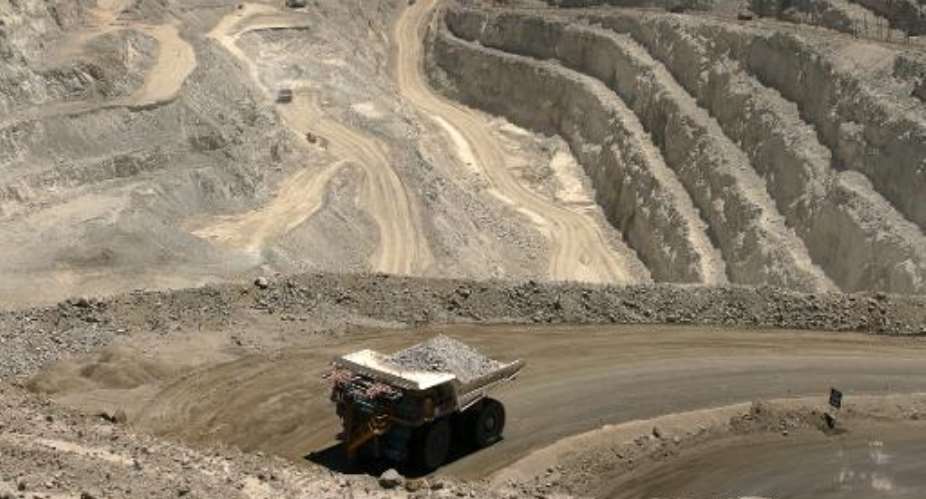Windhoek (AFP) - Rio Tinto workers in Namibia who mined uranium to supply the British and American militaries in the 1970s are suffering from cancer and other illnesses, a study has found.
A joint study by charity Earthlife Namibia and activists at the Labour Resources and Research Institute showed that workers who were employed at the firm's Rossing mine in the Namib Desert, were now battling cancer and respiratory ailments, after years of working in one of Africa's largest mines.
"Miners who started working for Rossing at the early years of operation, were not protected against exposure, be it dust or radiation or both," the report said.
"Moreover they had no knowledge about the danger uranium mining poses."
The Namibian government holds a 3 percent stake in the mine that produces around seven percent of the world's uranium. Iran has a 15 percent shareholding.
The mine started operations in 1976 and is thought to be one of the longest-running open pit uranium operations in Africa.
"These workers started working in the mine in the 70s and early 80s when safety conditions were non-existing or very poor," according to the report.
Rio Tinto has denied knowledge of the former workers health problems, saying the company would study the report.
Company spokesman Illtud Harri told AFP that the company has "always regarded the health and safety of employees as a priority."
"We are not aware of any medical evidence of widespread health issues for our current or former employees which we monitor regularly," said Harri.
A total of 39 of 44 workers who took part in a questionnaire-based survey complained of a range of health problems associated with hard labour, including breathing, hearing and visual problems.
Older workers said they knew miners who died of cancer and other diseases, mainly after retirement.
Namibia exports about 4,000 tons of uranium oxide a year, making the southern African country one of the world's top producers.
The researchers recommended a large-scale epidemiology study by independent medical experts to examine workers who started working in the 1970s or early 1980s.





 Ghana will make maiden voyage into space should Bawumia become President — Chair...
Ghana will make maiden voyage into space should Bawumia become President — Chair...
 Train crash: Despite the sabotage, we shall not be deterred and will persevere —...
Train crash: Despite the sabotage, we shall not be deterred and will persevere —...
 Tema-Mpakadan railway project a perversion of the original viable concept design...
Tema-Mpakadan railway project a perversion of the original viable concept design...
 Train crash: Elsewhere, everyone involved in the test will either be fired or re...
Train crash: Elsewhere, everyone involved in the test will either be fired or re...
 Ghana, other election bound-countries must build fiscal buffers – IMF admonishes
Ghana, other election bound-countries must build fiscal buffers – IMF admonishes
 Parliament reconvenes late May, denies Speaker Bagbin delaying recall over NDC t...
Parliament reconvenes late May, denies Speaker Bagbin delaying recall over NDC t...
 $100m needed to revitalise Ghana's poultry sector — GNAPF
$100m needed to revitalise Ghana's poultry sector — GNAPF
 Driver arrested for causing train collision on Tema-Mpakadan Railway Line
Driver arrested for causing train collision on Tema-Mpakadan Railway Line
 Police grab trucker for Tema-Mpakadan rail accident
Police grab trucker for Tema-Mpakadan rail accident
 Gov't plans to revise traditional customs following Gborbu child marriage
Gov't plans to revise traditional customs following Gborbu child marriage
